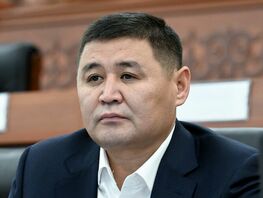To prevent drinking water shortages in Bishkek, the general plan developers are proposing a number of measures, including introducing a limit on its use.
According to the City Hall, the city and settlements incorporated as part of the administrative-territorial reform are currently supplied with drinking water from 77 water intakes.
The Orto-Alysh water intake remains the capital’s main source of water supply. It provides over 40 percent of the total drinking water.
209 artesian wells, 160-250 meters deep, are in operation. Twelve water intakes have second-level pumping stations. 328 pumping stations, which increase and maintain pressure in the pipelines, supply water to multi-story residential buildings.
According to expert forecasts, Bishkek’s estimated water consumption by 2050 will be approximately 500,000 cubic meters per day.
In this regard, the general plan outlines proposals and measures:
- a survey to confirm the reserves of underground water due to the observed water shortages in the summer;
- reconstruction and expansion of water supply facilities—water intake and treatment facilities, and water supply networks—due to their high wear;
- construction of new water intake and treatment facilities and water supply networks for transporting water to new construction areas, including areas of individual residential development;
- incentives for the installation of equipment that records water consumption (drinking water meters with remote data transmission);
- introduction of recirculating water supply systems and metered water supply to the population and businesses with increased tariffs for water use in excess of the limits;
- complete conversion of water use to irrigation of green spaces, lawns, and streets;
- implementation of drip irrigation systems.
It should be noted that the issue of water shortages is becoming more acute in the city from year to year. Residents of various districts across the capital complain of a lack of water or low pressure.
The municipality previously discussed introducing a fee for exceeding drinking water consumption standards.
The general plan of Bishkek is a strategic document for the long-term development of the capital, defining the directions of urban development, transport, economic, and social policy for the city until 2050.
The draft general plan was developed by the Scientific Research Institute of Perspective Urban Development of St. Petersburg with the participation of the Bishkek City Hall and at the request of the Cabinet of Ministers of the Kyrgyz Republic.
The general plan provides for the modernization of transport infrastructure, development of logistics, IT, and creative industries, as well as the preservation of historical and cultural heritage and the creation of a comfortable urban environment.






